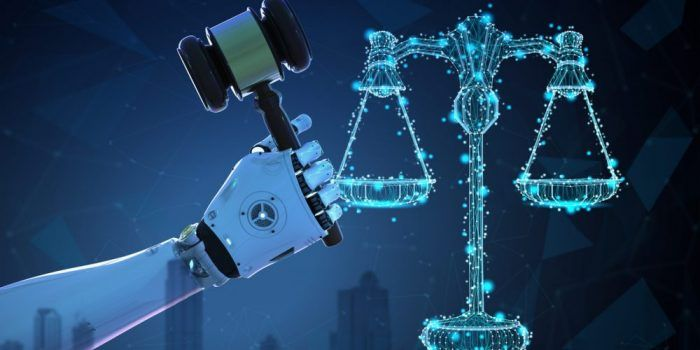
AI, or Artificial Intelligence, are like clever machines that can think and act by themselves. But, similar to people, they need guidelines. Those guidelines are termed as “AI Ethics”. The first-ever global guideline on AI ethics – the ‘Recommendation on the Ethics of Artificial Intelligence’ – was released by UNESCO in November 2021. All 193 Member States adopted the framework.
What is AI Ethics?
AI ethics is a multidisciplinary field that studies how to optimize AI’s beneficial impact while reducing risks and adverse outcomes: IBM
What comes under AI Ethics?
| 1 | 2 | 3 | 4 |
|---|---|---|---|
| Data responsibility and privacy |
Fairness | Explainability | Robustness |
| Transparency | Environmental sustainability |
Inclusion | Moral agency |
| Value alignment | Accountability | Trust | Technology misuse |
Why is AI Ethics Important?
AI ethics acts as a gatekeeper, ensuring that there are no unfairnesses, anomalies, or violations of human rights and civil liberties. The below mentioned points explains the importance of AI Ethics:
1. Fairness:
Imagine if a robot made decisions, but it always favored one group of people over another. That wouldn’t be fair, right? AI Ethics helps make sure AI treats everyone equally.
2. Privacy:
We all want our personal information to be kept safe and this is only possible via AI Ethics, which ensures that AI systems do not misuse or share our private information.
3. Safety:
The goal is to guarantee that AI agents address and minimize unintended consequences and attack weaknesses. Think about a self-driving car. It needs to make sure everyone on the road is safe. AI Ethics helps in crating an environment where we are safe.
4. Accountability:
If something goes wrong with AI, we need to know who’s responsible. AI Ethics helps us figure out who to talk to and who to blame (if needed).
5. Transparency:
Imagine if AI did things, but we didn’t know how or why. That would be confusing! AI Ethics says that AI should be clear and open about what it’s doing.
Real-life Examples:
1. Job Recruitment and Selection:
AI-driven recruitment tools are becoming increasingly prevalent. AI Ethics ensures that these tools assess candidates based on relevant qualifications rather than factors that may lead to biased decisions.
2. Healthcare and Medical Diagnoses:
In the healthcare sector, AI is utilized for medical diagnoses and treatment recommendations. Ethical considerations ensure that these recommendations prioritize patient well-being and adhere to established medical standards.
3. Content Filtering on Social Media:
Social media platforms employ AI algorithms to filter and moderate content. AI Ethics mandates that these algorithms strike a balance between freedom of expression and preventing the spread of harmful or misleading information.
Conclusion
In a nutshell, AI Ethics is like a superhero cape for Artificial Intelligence. It makes sure AI does good things and doesn’t cause problems. So, next time you hear about AI, remember the importance of AI Ethics! It’s like a good friend, making sure everything runs smoothly and fairly.
Moonpreneur is on a mission to disrupt traditional education and future-proof the next generation with holistic learning solutions. Its Innovator Program is building tomorrow’s workforce by training students in AI/ML, Robotics, Coding, IoT, and Apps, enabling entrepreneurship through experiential learning.















